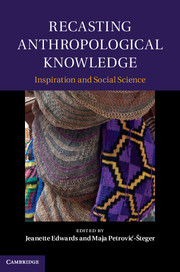Book contents
- Frontmatter
- Contents
- Contributors
- Acknowledgements
- 1 Introduction
- 2 Writing the parallax gap
- 3 Too big to fail
- 4 ???Hybrid custom??? and legal description in Papua New Guinea
- 5 Entomological extensions
- 6 Kinship and the core house
- 7 Invisible families
- 8 Knowledge in a critical mode
- 9 Spools, loops and traces
- 10 Inspiring Strathern
- Bibliography
- Index
8 - Knowledge in a critical mode
feminist expertise in design and planning
Published online by Cambridge University Press: 07 September 2011
- Frontmatter
- Contents
- Contributors
- Acknowledgements
- 1 Introduction
- 2 Writing the parallax gap
- 3 Too big to fail
- 4 ???Hybrid custom??? and legal description in Papua New Guinea
- 5 Entomological extensions
- 6 Kinship and the core house
- 7 Invisible families
- 8 Knowledge in a critical mode
- 9 Spools, loops and traces
- 10 Inspiring Strathern
- Bibliography
- Index
Summary
Knowledge isn’t what it used to be
Critique and new knowledge tend to go together in western conceptualisations. No wonder then that it seems hard to imagine an anthropology, or indeed any research, that is not, however vaguely or implicitly, activist. But could knowledge production also have quite contrasting effects?
Changes in knowledge and its uses have inspired careful description and conceptual innovation in a kind of expanded anthropology largely stimulated by Marilyn Strathern, her students and her colleagues. They have embraced ‘the challenges of doing ethnography in conditions in which the distance between the anthropologist and informant, theory and data are no longer self-evident or even ethically defensible’ (Riles 2006: 5), and have not been afraid to ask ‘large and important political, philosophical, and epistemological questions’ (Riles 2006: 3). The recently established idea that experts value local knowledge and public opinion, in other words, that knowledge has been democratised, raises such large and important questions. This chapter extends the debate on this apparent democratisation by offering a critical commentary on knowledge work in architecture, urban design and planning. Specifically it highlights difficulties faced by would-be counter-experts.
- Type
- Chapter
- Information
- Recasting Anthropological KnowledgeInspiration and Social Science, pp. 125 - 144Publisher: Cambridge University PressPrint publication year: 2011



